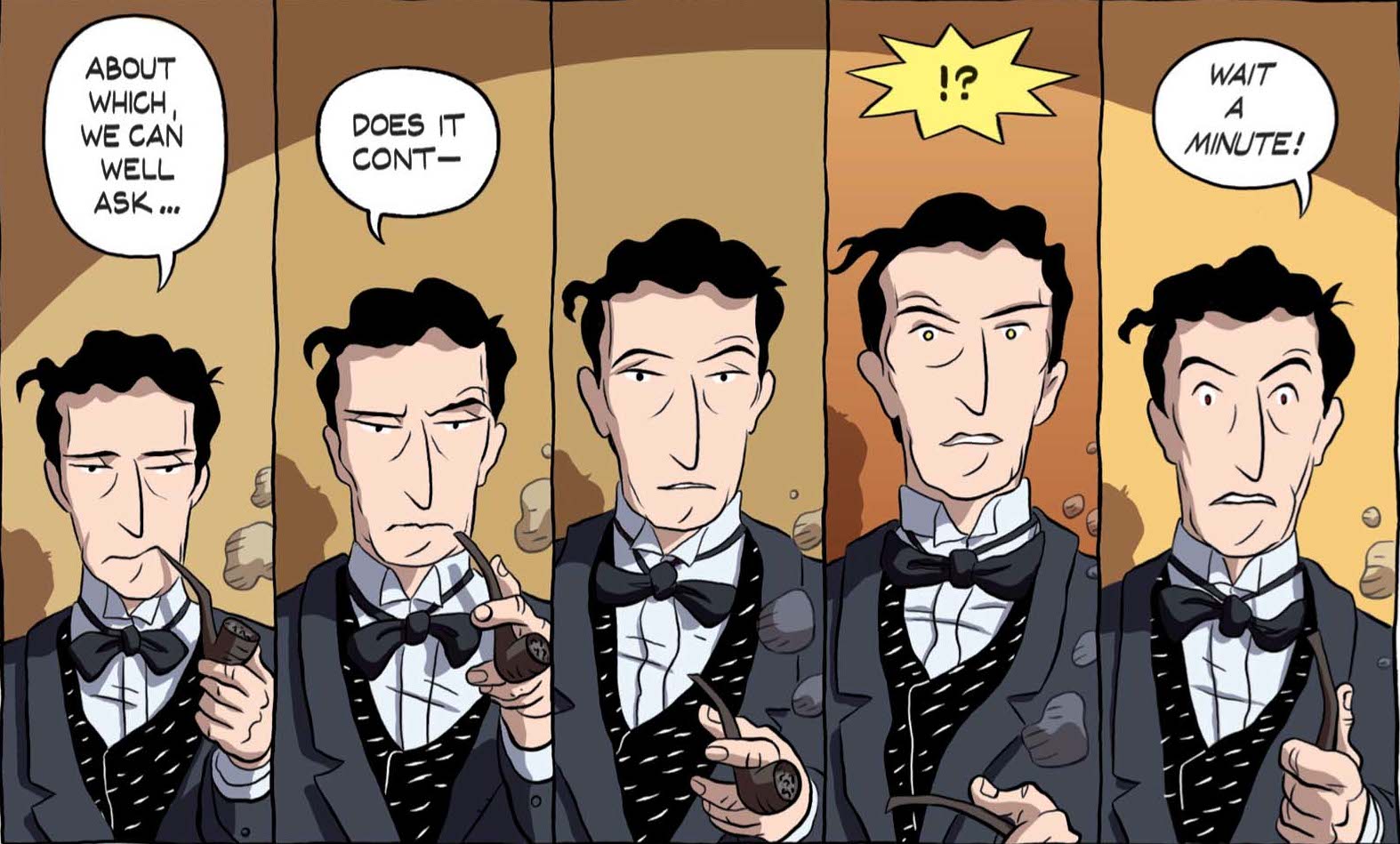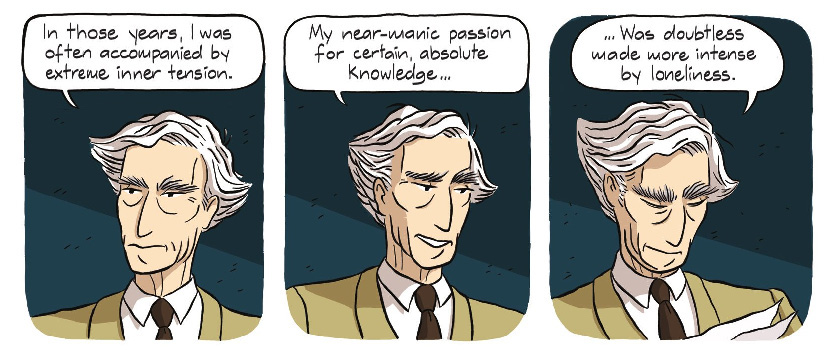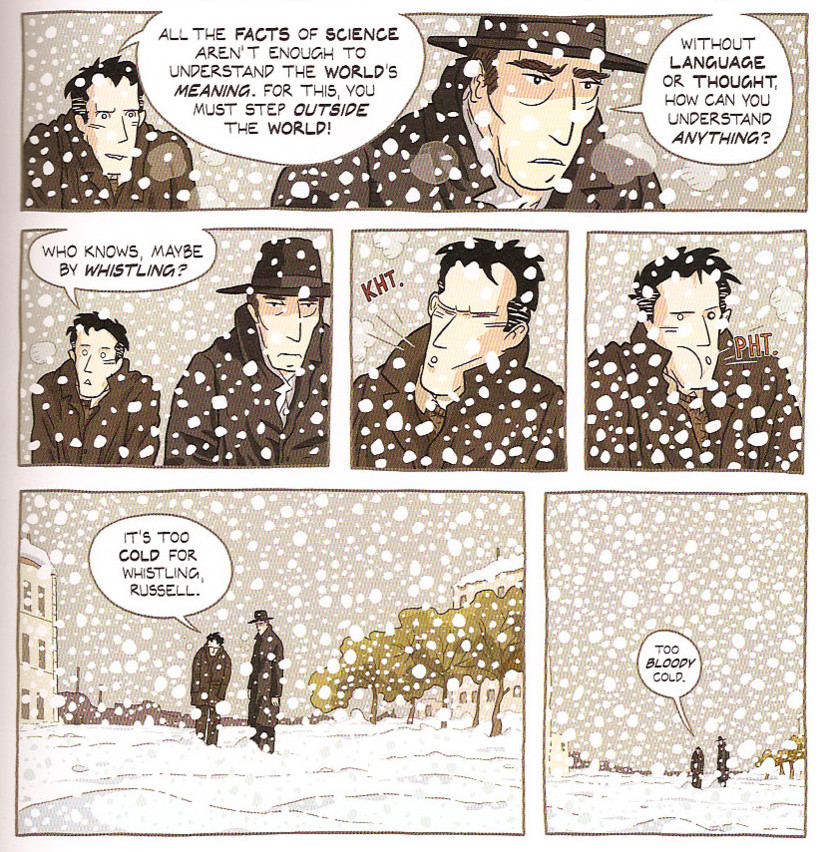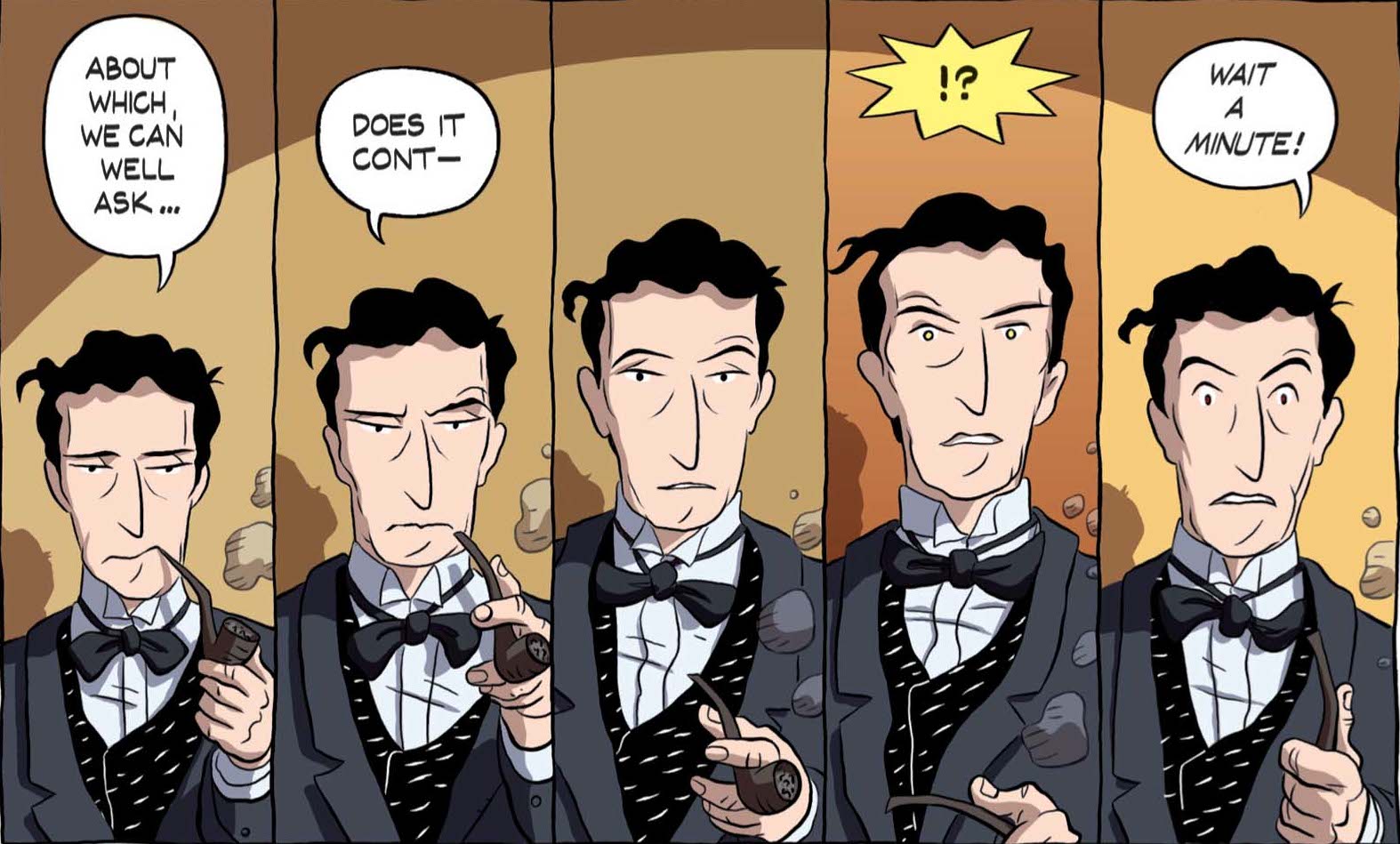BERTRAND RUSSELL: “I say... that's an interesting dichotomy: the set of sets which contain themselves, and the set of sets which don't.”

There's so much LOGICOMIX does so right.
At first, I went into it expecting a Logic For Dummies, to teach me layman's versions of the great ideas in logic and mathematics. Instead, the graphic novel begins by specifically telling you it is not that, and it's a story of the people behind the ideas.
Yet somehow, by delivering these ideas through characters (plus some meta-narrative where the writers and artists of this book argue with each other), I learnt a lot more about the ideas. Not just the content of the ideas, but their context, purpose, historical significance, and how they affected real, living human beings in the past and present.
For example, I had known about Gödel's Incompleteness Theorems before, but thought of them as intellectual curiosities. But LOGICOMIX made me sympathize and feel for these mathematician characters, who I watched grow over decades, trying desperately to find the foundations of mathematics... and only 5/6ths into the book, Gödel gives his lecture, proving that you can't ever prove the foundations.
And now, instead of an intellectual curiosity, it felt like a punch to the gut.
Not only did I understand the significance and context of Gödel's Incompleteness Theorems, but LOGICOMIX also made me viscerally feel the vertigo and devastation of his work.
As Von Neumann said after Gödel's lecture: “It's all over.”
And after that, I watched Russell and the gang try to piece their shattered lives together, having watched their life's work go up in flames before them, and fuck it hurt. It hurt.

LOGICOMIX executed fantastically on something I've been thinking about for a while - how to use stories for educating and enriching people's lives, rather than a mere escapist diversion. How to give the audience both what they want and what they need.
I wrote about Miguel Sabido yesterday, a person who made soap operas which literally saved thousands of lives. But I'm also reminded of Veritasium's videos arguing that learning is fundamentally social, and how showing two characters debating helps increase learning. (LOGICOMIX shows its writers & artists debating, to show multiple sides and interpretations of past ideas and stories, giving the reader a fuller understanding!)
All this, by the way, stems from Social-Cognitive Theory, which I'm now convinced that if only - if only we artists applied this theory to our work more concretely and more often - we'd have a powerful way to change hearts and minds.
Oh - one more thing. LOGICOMIX has many mathematical lessons, but at its core, it has one powerful, personal lesson:

Russell and the gang being unable to handle "illogical" things like love and family. Young Russell's grandmother being an authoritarian control-freak. The rise of absolutist fascism in Europe at the time. Russell's mentor spending his dying years trying to logically prove the "Jewish Danger". Wittgenstein and Gödel using logic to question the foundations of logic.
Using "show don't tell", the book hammers home the same lesson over and over again:
Avoid absolutism. Accept ambiguity.
In the beginning of the book, the authors call out the idea of "they were driven to madness by too much logic" as false. And instead, they said the opposite was true, but kept the explanation until the end. Finally, they reveal their explanation: the kind of people who are incapable of handling ambiguity, are exactly the kind of people who would be obsessed with logic. And then these people meet the same fate as Cantor and Gödel - succumbing entirely to madness.
And that frightens me. Because many of my friends fall into that Spock and Sherlock category. (and I used to, too!) The kind of people who want to live a completely rational, perfectly logical life, and do away with all the irrationalities of... well... reality.
I genuinely fear for my friends.
And I think LOGICOMIX can help them.
The book shows the character growth of Bertrand Russell, one of the greatest figures in mathematics/logic, adopting this lesson himself. At the end, he literally tells a full classroom to avoid absolutism, and accept the ambiguities of the real world. If my rationality-obsessed friends were to see someone they look up to, go through this slow, realistic character growth... hopefully it'll help set them on the same path, too.
LOGICOMIX can save me and my friends from self-destruction. And I'd be damned if that's not one of the noblest things a storyteller can do.
tl;dr:
- Use stories to show the context of technical ideas.
- Have characters debate to show multiple viewpoints.
- Show (don't tell) a lesson through character growth.
- With an audience, turn what they want into what they need.
- Accept ambiguity.
P.S: LOGICOMIX also made me fall in love with Wittgenstein. (at least their interpretation of him!)

